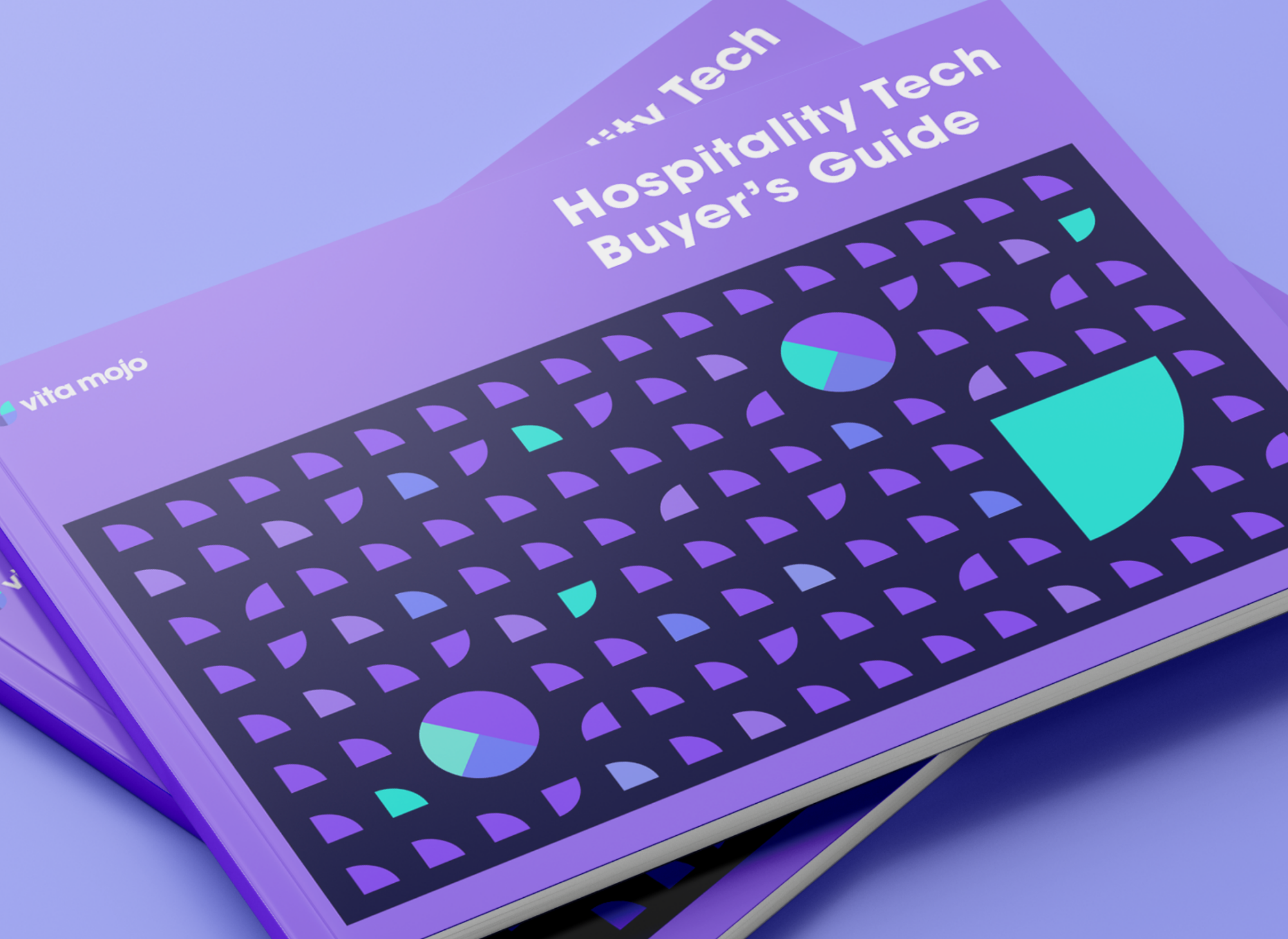Get tips into choosing new hospitality tech from two growing brands, who have embarked on their own digital journey
Making decisions around new tech can make you feel like you’re on your own.
But this couldn’t be further from the truth.
Although every tech journey is different, there are shared experiences across the industry that can help you make the right decision for your operation.
We were lucky enough to be joined by two brands at very different stages of their digital transformation journey for a panel focusing on how best to choose and implement new technology.
Tossed and Bleecker
Angelina Harrisson – Brand Director at Tossed – and Safa Aden – Head of Operations at Bleecker – gave some fascinating insights into their brands’ relationship with technology during the panel hosted by Vita Mojo’s VP of Commercial Nick Liddle. .
Whilst healthy fast food chain Tossed have been implementing tech solutions from the beginning of their operation (they first introduced kiosks all the way back in 2015), burger chain Bleecker are currently going through a massive tech evolution of their own.
Read on to find out exactly what went into their decisions, and how they managed the process of launching new technology in these growing operations.
1. Build a leadership team that will empower the tech
“For a long time we were just focused a lot on the quality of the food. What we’re realising now is that we need the tech to match that quality too.
We didn’t want to rush; so first we built the leadership team that could empower that tech.
You can put all the shiny new systems in that you want, but if that change management doesn’t happen correctly and you don’t have the right people to follow it through, then it’s not going to work.
It’s about manpower and training, making sure it gets implemented in the right way. And when we roll it out, have people monitoring it, evaluating it. That’s where it can go wrong: you can’t put the system in and just leave it.”

2. Understand the pain point you have
“Before we move to any new system. We do the research, and the leg work of understanding the pain point – until we do that, we’re not moving.
For example, one of the first things I spotted when I came in is that we were still using receipts and shouting orders. There’s a lack of analytics that we can get from paper receipts.
And when I came in we had different POS systems for different sites, Click & Collect for some, a couple of kiosk screens, a few manual till systems.
We’re looking to rebuild the whole tech stack; what works in some sites might not work in others, but how do we make it work with one system? Vita Mojo has been brilliant in helping me understand what route to take with that because our tech stack is a little bit discombobulated, some things integrate, some things don’t, so we’re working through that together.”

“We wanted a simple solution to a complicated problem. How do we serve more customers at lunchtime?
We’re a very classic salad bar concept where you queue up, you go along, choose your salad, and pay for it at the end. It’s really restrictive in terms of how many people you can get through that process within a short period of time.
During COVID, we joined forces with Vita Mojo. We wanted a company that was specialised, where it wasn’t just up to us to make the decisions and all the development requests.
It’s gone from there: we’ve got 13 sites, we use kiosks, online ordering, we’re fully integrated with Deliveroo and Uber, we’ve got collections screens, and loyalty bolted on with Como.”

Get more tips from the pros...
Our full Hospitality Technology Buyer’s Guide equips you with everything you need to make an informed and confident decision when buying new technology, including:
- Step-by-step guides on understanding your tech setup and business goals
- Over 40 questions to ask potential tech vendors
- A vendor scorecard to help you compare different providers
- Quotes and insights from industry experts
3. Embrace a centralised approach to tech
“You used to have these point solutions like POS, Click & Collect, delivery aggregators. But you’d be very limited as to what that tech could do because they were all point solutions, and you were trying to mush them all together. That’s not designed to be flexible.
But now, the tech landscape has changed.
For instance you can have one place where you create your entire menu and push out – that can be OPAT, kiosks, C&C, delivery menus, but you can just flex and turn that channel on when it works for you.”

4. Your menu should become the centre of your tech strategy
“The POS used to be considered the central source of truth, but it wasn’t. It can’t be. Now the menu becomes the central source of truth and then you have various channels, of which POS is one.”

“We don’t even use POS. For me, POS means an old school till – we simply don’t have them because all our orders are placed digitally – online, on the kiosk, or through delivery partners.
We were always making calls on the till: if they’ve ordered a salad, even if it’s only got five or six ingredients, do you just select ‘salad’ for £3, and have no stock control, or do you make the worker type in every single ingredient and make sure you know what money your making? But then that’s going to add another 30 seconds onto your order.
The more personalisation you add, the more complicated it gets. But with a menu led tech solution the customer can take their time, they don’t feel like they’re under any pressure, they can choose what they want.“

5. Be open to the hidden benefits of digital ordering
“Sales have gone up, and tech has played a big part in that. It’s taken away that part of having to upsell to a customer, it does it automatically.
But also from an efficiency viewpoint, the kiosks have taken us to another ball game; being able to order quicker helps us produce quicker.
It also gives us data now, whereas before with the till system we were using we didn’t get data – we got the receipt, we binned it.”

6. Make sure loyalty works on every channel for the best customer experience
“We work with Como who are a loyalty provider, CRM – integrated with Vita Mojo. And it works just how you would expect loyalty to work, you set up certain rules, gifts and communications, surprise and delight.
As a minimum requirement you need it working on all your channels. There’s nothing worse than ordering through a certain channel and being told you can’t use your points. It’s something we’ve now managed to launch with our delivery menu, events and corporate catering.
It’s been massively helpful in a number of ways. People love it, they love collecting their points. And it’s really useful in ways that you wouldn’t consider. For example if someone emails in with a problem, I can straight away pull up all their data, how often they go, which shops they go to, what they order.”

You aren’t on your own when it comes to changing your hospitality tech.
Learn more about how other growing brands have successfully launched new tech – and discover what this might look like for your own operation – by chatting with an expert now.


